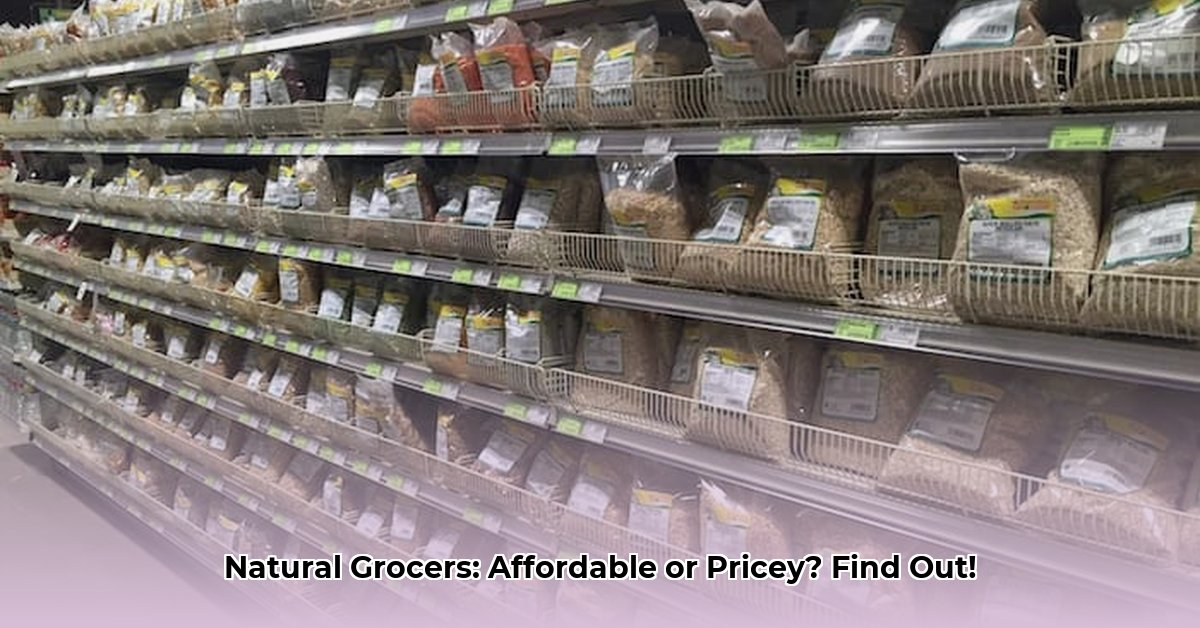
A Price Comparison: Natural Grocers vs. the Competition
Is Natural Grocers expensive? The answer depends on several factors, primarily your priorities and budget. This analysis compares Natural Grocers' prices to those of Kroger, Safeway, Trader Joe's, and Aldi, considering both organic and conventional options. Price fluctuations are inevitable, so view this as a snapshot rather than a definitive conclusion.
| Item | Natural Grocers | Kroger | Safeway | Trader Joe's | Aldi |
|---|---|---|---|---|---|
| Organic Milk (1 gallon) | $5.99 | $4.49 | $4.99 | $4.79 | $3.99 |
| Regular Milk (1 gallon) | $3.99 | $3.49 | $3.79 | $3.29 | $2.99 |
| Organic Bananas (per lb) | $0.79 | $0.59 | $0.69 | $0.59 | $0.49 |
| Organic Eggs (1 dozen) | $5.49 | $4.29 | $4.79 | $3.99 | $3.49 |
| Organic Chicken Breast (per lb) | $8.99 | $6.99 | $7.49 | $7.99 | $5.99 |
| Brown Rice (5lb bag) | $7.49 | $4.99 | $5.49 | $5.99 | $4.49 |
As the table shows, Natural Grocers' organic items are frequently more expensive. However, their conventionally-grown options sometimes show smaller price differences. This reflects their focus on higher-quality, organic products. But, is this premium justified? Let's explore.
The Value Proposition: More Than Just a Price Tag
Natural Grocers offers more than just groceries. Their commitment to organic, natural, and often locally-sourced products is a core value proposition. But does this justify the higher prices? Many customers believe it does. These shoppers prioritize health, ethical food sourcing, and a unique shopping experience.
"For many of our customers, the premium paid at Natural Grocers is a reflection of their values. They're willing to pay more for quality, transparency and sustainability," says Dr. Anya Sharma, Registered Dietitian and Nutrition Consultant.
Customer Demographics: Who Benefits Most?
Natural Grocers' pricing isn't for everyone. Their target demographic is typically higher-income consumers who prioritize health and wellness. Budget-conscious shoppers may find more affordable alternatives at competitors like Aldi. Understanding your own spending habits is critical in evaluating Natural Grocers' value.
Sales and Promotions: Mitigating the Cost
Natural Grocers does offer sales and promotions, although perhaps less frequently than larger chains. While these deals can help, they may not always significantly offset the higher base prices. Active bargain hunters who plan their shopping around these promotions may still find considerable savings.
The Organic Premium: Understanding the Cost
The higher cost of organic products isn't just arbitrary. Higher labor costs, stricter regulations, and often lower crop yields contribute significantly to the price difference. Natural Grocers' prices reflect these inherent realities of organic farming.
Conclusion: A Personal Decision
Ultimately, whether Natural Grocers is "expensive" depends entirely on your individual priorities, budget, and values. Weigh the trade-offs between cost and the potential benefits – healthier options, ethical sourcing, and a positive shopping experience – to determine if Natural Grocers aligns with your needs. Remember to regularly check their sales and promotions to maximize your savings.
Key Takeaways:
- Natural Grocers' prices often exceed those of competitors, especially for organic items.
- Their higher prices primarily reflect their commitment to organic and ethically-sourced products.
- The overall value proposition depends on individual priorities and budgets.
- Sales and promotions can help reduce costs, but may not always fully offset higher base prices.
- Consider your personal values and spending patterns to determine if Natural Grocers is the right choice for you.